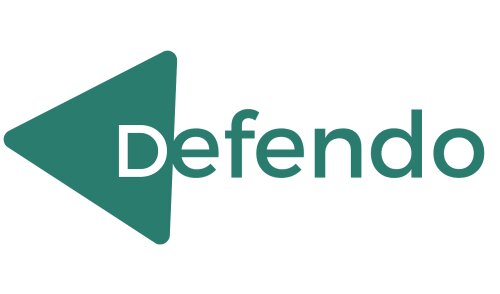Best Conveyancing Lawyers in Santiago
Share your needs with us, get contacted by law firms.
Free. Takes 2 min.
Free Guide to Hiring a Real Estate Lawyer
List of the best lawyers in Santiago, Chile
About Conveyancing Law in Santiago, Chile
Conveyancing in Santiago, Chile refers to the legal process of transferring the ownership of real estate property from one party to another. This process involves a series of steps, including reviewing property titles, performing due diligence, drafting and signing legal documents, and registering the property transfer with relevant government authorities. Conveyancing is an important part of buying or selling property and ensures all legal requirements are met, protecting the rights of both the seller and buyer.
Why You May Need a Lawyer
Seeking legal assistance in conveyancing can help you navigate complex regulations and avoid potential pitfalls that could result in legal disputes or financial loss. Common situations where a lawyer’s help may be necessary include:
- Purchasing a home or commercial property
- Selling real estate on your behalf
- Verifying the legal status of a property and ensuring there are no encumbrances or debts
- Clarifying unclear or incomplete property titles
- Resolving disputes on boundaries or ownership rights
- Advising on taxation and duties relating to property transfer
- Preparing or reviewing purchase agreements and other legal documentation
Local Laws Overview
Conveyancing in Santiago, as in the rest of Chile, is governed by local civil law provisions and regulated by national legislation, notably the Chilean Civil Code and the Ley de Registro Conservatorio de Bienes Raíces (Real Estate Registrar Law). Some key aspects include:
- All property transfers must be executed through a public deed before a Chilean notary and registered in the Real Estate Registrar (Conservador de Bienes Raíces).
- Due diligence is required to ensure the property is free of debts, restrictions, or third-party claims.
- Buyers typically pay transfer taxes and certain administrative fees.
- Foreigners have the right to buy property in Chile, though additional documentation may be needed for identification and compliance with anti-money laundering requirements.
- Legal assistance is strongly recommended, as the process and documentation are conducted in Spanish and require strict adherence to formalities.
Frequently Asked Questions
What is conveyancing?
Conveyancing is the legal process of transferring ownership of real estate from one party to another, involving due diligence, contract drafting, and official registration.
Do I need a lawyer to buy or sell property in Santiago, Chile?
While not legally mandatory, it is highly recommended to have a lawyer review documents, conduct due diligence, and oversee the process to protect your interests.
What steps are involved in a property purchase in Santiago?
The steps include property title search, negotiation, drafting and signing the promise of sale, signing of the public deed, paying taxes and fees, and registration at the Real Estate Registrar.
How long does the conveyancing process take?
The process can take between 2 to 6 weeks, depending on the complexity of the transaction and the promptness of the parties involved in submitting required documentation.
What documents are needed to transfer property?
Key documents include the property’s title deeds, the seller’s and buyer’s identification, property registration certificates, tax payment receipts, and proof of payment for the property.
What taxes or fees apply in Santiago for property transfers?
The main tax is the Impuesto al Registro de Propiedad, and fees are paid to the notary and the Real Estate Registrar. There might also be a capital gains tax if the property has appreciated in value.
Can foreigners buy property in Santiago?
Yes, foreigners can purchase property in Santiago with few restrictions, but they must obtain a Chilean tax identification number (RUT) and follow the standard legal procedures.
What is a public deed and why is it needed?
A public deed is an official document prepared and authorized by a notary. It is necessary for the legal transfer of property ownership in Chile.
How can I verify if a property has debts or encumbrances?
A lawyer can perform a title review and request certificates from the Conservador de Bienes Raíces to confirm the property’s legal status and any outstanding obligations.
What happens after the property is registered in my name?
Once registered, you are the official legal owner of the property. You will receive a registration certificate confirming your ownership.
Additional Resources
If you need more information or assistance, the following resources can be helpful:
- Conservador de Bienes Raíces de Santiago: The official body for property registrations and documents.
- Notarías Públicas in Santiago: Notaries play a key role in preparing and certifying legal property documents.
- Ministerio de Bienes Nacionales: The Ministry of National Assets oversees policy and regulations on real estate matters.
- Colegio de Abogados de Chile: The national Bar Association can help you find qualified conveyancing lawyers.
Next Steps
If you need legal help with conveyancing in Santiago, Chile:
- Gather all relevant property documents and identification papers.
- Contact a qualified real estate lawyer experienced in Chilean law.
- Arrange an initial consultation to discuss your needs and clarify costs.
- Work closely with your lawyer to conduct due diligence, prepare documentation, and ensure the lawful registration of your property transaction.
- Keep copies of all documents and stay informed on each step of the process to safeguard your interests.
Professional legal guidance will help you navigate conveyancing successfully and minimize any legal or financial risks.
Lawzana helps you find the best lawyers and law firms in Santiago through a curated and pre-screened list of qualified legal professionals. Our platform offers rankings and detailed profiles of attorneys and law firms, allowing you to compare based on practice areas, including Conveyancing, experience, and client feedback.
Each profile includes a description of the firm's areas of practice, client reviews, team members and partners, year of establishment, spoken languages, office locations, contact information, social media presence, and any published articles or resources. Most firms on our platform speak English and are experienced in both local and international legal matters.
Get a quote from top-rated law firms in Santiago, Chile — quickly, securely, and without unnecessary hassle.
Disclaimer:
The information provided on this page is for general informational purposes only and does not constitute legal advice. While we strive to ensure the accuracy and relevance of the content, legal information may change over time, and interpretations of the law can vary. You should always consult with a qualified legal professional for advice specific to your situation.
We disclaim all liability for actions taken or not taken based on the content of this page. If you believe any information is incorrect or outdated, please contact us, and we will review and update it where appropriate.











